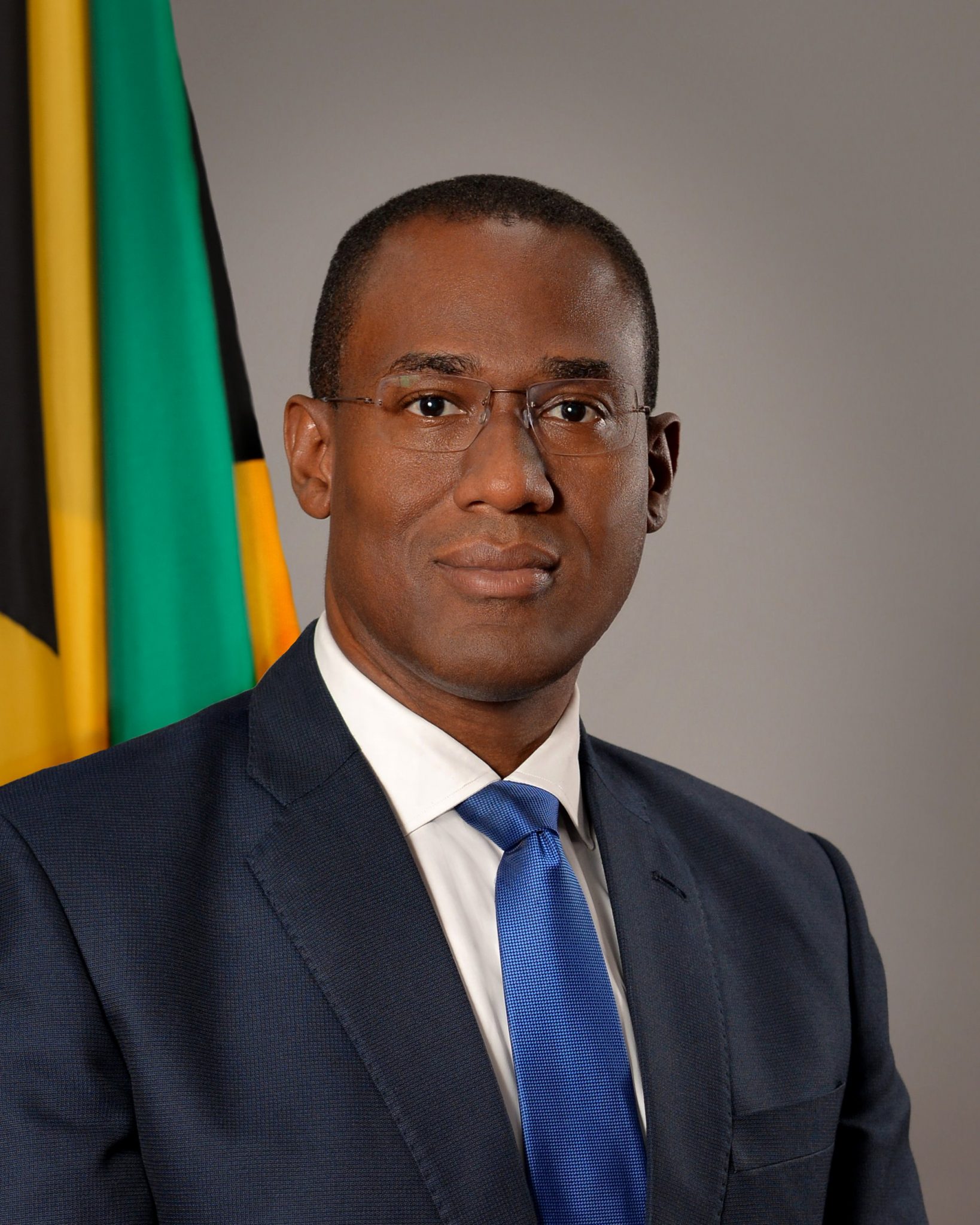OPENING REMARKS
The 2021/22 fiscal year central government and public body budgets have been formulated around the continuing global and local impact of the Covid-19 pandemic and the efforts to counter its spread and restore higher levels of
economic activity.
The Covid-19 pandemic generated both a health crisis and an economic crisis during the current financial year 2020/21. The pandemic has impaired the health of thousands of Jamaicans, strained the health systems and led to the reduction of economic activity across Jamaica including the virtual shutdown of the tourism sector for much of the year.
This translated into a significant loss of revenue for the Government and, simultaneously, to the need for new expenditure to address the health consequences while cushioning the social and economic impact.
The hit to the revenues in FY 2020/21 is estimated at an unprecedented decline of 11.3% or $73.3 billion as compared with the FY 2019/20 inflows. Despite this overall expenditure is programmed at 3.8% or $24.2 billion higher than the FY 2019/20 spend.
To enable the Government to pursue the required expenditure in the face of the unprecedented revenue fallout, the Government requested and obtained suspension of the fiscal rules for FY 2020/21, following amendment of the
Financial Administration and Audit (FAA) Act that included an adjustment of the target date for achievement of debt/GDP of 60% (or less) from FY 2025/26 to FY 2027/28.
The FAA Act requires that in periods following suspension of the fiscal rules corrective action, in the form of a constraint on the fiscal balance, be taken to restore the trajectory for achievement of the debt/GDP target. This corrective action has been applied in developing the FY 2021/22 Central Government and Public Bodies budgets.
AIDING PUBLIC UNDERSTANDING OF THE BUDGET
Under our fiscal responsibility framework it is a requirement that the budget is passed before the beginning of the fiscal year to which it applies, that is, by March 31st of each year. It is also a requirement that the auditor general (and soon, the Independent Fiscal Commission) reviews the budget for compliance with the fiscal rules prior to its consideration by the standing finance committee of parliament. These two requirements together make it necessary to table the budget at this time each year to be followed three weeks later by the opening budget presentation by the minister of finance.
The budget is presented in a rigid format that conforms to international best practice chart of accounts for public finance. It is not presented in a policy framework. As a result, it is difficult to decipher the policy intent of the
Government from a perusal of the printed accounting entries.
For this reason, since this timetable change took effect, it has been necessary to offer a few remarks at the time of the tabling of the budget.
Furthermore, at this unprecedented time, when Jamaica is in the grip of the Covid-19 pandemic and its impact, the public interest is best served by the people of Jamaica having an understanding, as early as possible, of the policies
and programmes planned for the upcoming fiscal year.
While I may be taking attention away from the budget speech, it is in the public interest that I outline some facts that I think are important for the public to be aware of.
PLANNING FOR RECOVERY
This budget follows a year in which Jamaica experienced the worst economic contraction in its history due to the measures necessary to slow the spread of the coronavirus.
Inclusive of the current January – March 2021 quarter, by the end of March we will have experienced five consecutive quarters of economic decline. We lost $73 billion in revenues last year, we had to suspend the fiscal rules and we were fortunate to have the ability to draw down on substantial cash resources last year which we were warehousing to accelerate debt repayment.
In previous downturns, economic contractions have lasted several years in a row. In the global financial crisis that began in 2008, for instance, the economy declined for three consecutive years and 11 out of 12 quarters. In the 1970s, we experienced five consecutive years of economic contraction from 1976 to 1980 inclusive.
From the very outset of this economic crisis we positioned ourselves to absorb the shock and to recover faster and stronger than we have before. We have made public our intention to recover quickly and this informed the commissioning of the Covid Economic Recovery Task Force, its deliberations and Report.
Our task this year is to begin the economic recovery. We aim for economic recovery to begin the upcoming fiscal year and furthermore to begin this upcoming April – June quarter. Our budget, within the strictures with which we
have to operate, and to the greatest extent possible, is aligned with this objective.


